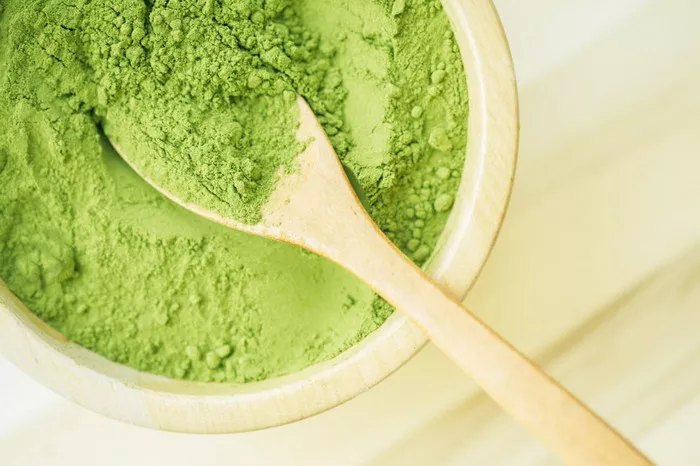For individuals looking to gain weight, whether for muscle building, athletic performance, or overall health, protein powder can be a valuable tool in their arsenal. Protein plays a crucial role in muscle growth and repair, and incorporating protein powder into their diet can help individuals meet their increased calorie needs and support their weight gain goals. In this comprehensive guide, we will explore the role of protein in weight gain, the different types of protein powders available, key factors to consider when choosing a protein powder, and practical tips for incorporating it into your daily routine.
Role of Protein in Weight Gain: Fueling Muscle Growth
Protein serves as the building blocks of muscle tissue, providing the essential amino acids necessary for muscle growth and repair. When combined with resistance training, adequate protein intake can support muscle hypertrophy, leading to increases in lean body mass and overall weight gain. Additionally, protein has a higher thermic effect compared to carbohydrates and fats, meaning that the body expends more energy digesting and metabolizing protein, potentially increasing overall calorie expenditure.
Calorie Surplus: Meeting Increased Caloric Needs
To effectively gain weight, individuals must consume a calorie surplus, meaning they consume more calories than they expend. While protein alone does not provide a significant source of calories compared to carbohydrates and fats, incorporating protein powder into their diet can help individuals increase their overall calorie intake, especially if they struggle to consume enough calories from whole foods alone. Protein powder can be easily added to meals and snacks to boost protein content and calorie density.
Types of Protein Powders: Exploring Your Options
There are several types of protein powders available, each with its own unique characteristics and benefits:
Whey Protein: Whey protein is a fast-digesting protein source derived from milk. It is rich in essential amino acids, particularly leucine, which plays a key role in stimulating muscle protein synthesis. Whey protein is an excellent choice for post-workout recovery, as it is rapidly absorbed by the body, delivering amino acids to muscles when they need them most.
Casein Protein: Casein protein is a slow-digesting protein source, also derived from milk. Unlike whey protein, casein forms a gel-like substance in the stomach, resulting in a slow and sustained release of amino acids into the bloodstream. This prolonged release of amino acids can support muscle protein synthesis over an extended period, making casein protein an ideal choice for bedtime or prolonged periods between meals.
Plant-Based Protein Powders: Plant-based protein powders, such as soy protein, pea protein, brown rice protein, or blends of various plant sources, are suitable options for individuals following vegetarian, vegan, or lactose-free diets. While plant-based proteins may have slightly lower protein quality compared to animal-based proteins, they can still provide all the essential amino acids necessary for muscle growth and repair when consumed as part of a balanced diet.
Mass Gainers: Mass gainers are high-calorie protein powders that typically contain a blend of protein, carbohydrates, and fats. These supplements are designed for individuals who struggle to consume enough calories from food alone and are looking to maximize weight gain. Mass gainers can be an effective way to increase overall calorie intake and provide a convenient source of nutrients for individuals with high energy requirements.
Factors to Consider When Choosing Protein Powder: Tailoring Your Selection
When selecting a protein powder, it’s essential to consider several factors to ensure it aligns with your individual needs and preferences:
Fitness Goals: Consider your specific fitness goals, whether it’s building muscle mass, improving athletic performance, or simply increasing calorie intake. Choose a protein powder that supports your goals and fits seamlessly into your overall nutrition plan.
Dietary Restrictions and Preferences: Take into account any dietary restrictions or preferences you may have, such as lactose intolerance, veganism, or food allergies. Opt for protein powders that align with your dietary needs and provide suitable alternatives if necessary.
Ingredients and Nutritional Value: Read ingredient labels carefully and choose protein powders with minimal additives and a balanced macronutrient profile. Look for products that provide a sufficient amount of protein per serving and consider the carbohydrate and fat content to ensure it fits within your overall nutrition goals.
Practical Tips for Using Protein Powder: Making it Work for You
Once you’ve selected a protein powder that meets your needs, here are some practical tips for incorporating it into your daily routine:
Timing of Protein Intake: Aim to consume protein powder strategically throughout the day to optimize muscle protein synthesis and support recovery. Consider consuming a serving of protein powder post-workout to replenish muscle glycogen stores and promote muscle repair and growth.
Incorporating Protein Powder into Meals and Snacks: Get creative with how you use protein powder by adding it to smoothies, yogurt, oatmeal, or baked goods. Experiment with different flavor combinations and recipes to keep things interesting and enjoyable.
Precautions and Considerations: Moderation is Key
While protein powder can be a valuable tool for supporting weight gain and muscle growth, it’s essential to use it in moderation and as part of a balanced diet. Excessive consumption of protein powder may lead to digestive discomfort, nutrient imbalances, or unnecessary calorie intake. Additionally, be mindful of potential allergens or sensitivities when selecting protein powders, and consult with a healthcare professional if you have any concerns or underlying health conditions.
Conclusion: Empowering Your Weight Gain Journey
In conclusion, selecting the right protein powder for weight gain involves understanding your individual needs, preferences, and goals. Whether you opt for whey protein for fast absorption, casein protein for sustained release, plant-based protein for dietary restrictions, or mass gainers for maximum calorie intake, protein powder can be a valuable tool for supporting your weight gain journey. By choosing high-quality protein powders, incorporating them strategically into your nutrition plan, and monitoring your progress, you can optimize muscle growth, support overall health, and achieve your weight gain goals with confidence.
[inline_related_posts title=”You Might Be Interested In” title_align=”left” style=”list” number=”6″ align=”none” ids=”6986,6923,6920″ by=”categories” orderby=”rand” order=”DESC” hide_thumb=”no” thumb_right=”no” views=”no” date=”yes” grid_columns=”2″ post_type=”” tax=””]































